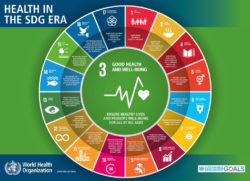Dust Bunny
Project Summary
The Dust Bunny project’s specific aim is to develop an understanding of the home as a source of infection from Antimicrobial Resistance (AMR) bacteria carried by dust by exploring hygiene practices across different home environments in Ghana.
The project has the ultimate goal of reducing bacterial infection in the home environment in order to reduce AMR. In adopting these aims, the Dust Bunny project’s aspirations are aligned to Sustainable Development Goal 3, target 3d, and its desire to strengthen the capacity of a developing country in making risk reduction interventions in response to a global health issue.

Who we are
Dr Emmanuel Tsekleves, is a senior lecturer in design interactions in health at Lancaster University. He is the principal investigator, leading the project management as well as the design research aspects of the project.
Prof Roger Pickup is a professor in molecular microbial ecology/environmental microbiology at Lancaster University. He leads the microbiology data analysis.
Prof Daniel Boakye is a Professor at the Parasitology Department at Noguchi Memorial Institute for Medical Research (NMIMR). He has the overall oversight of the research study in Ghana.
Dr Dziedzom De Souza is a senior research fellow at the Parasitology Department at NMIMR. He manage and coordinates the various research components of the study in Ghana.
Dr Collins Ahorlu, is a Senior Research Fellow in cultural epidemiology, social science approaches and community engagement a NMIMR. He oversees the fieldwork in Ghana.
Mr Andy Darby is a PhD Candidate at Lancaster University and Research Associate for the Dust Bunny project.
Core Partners
ImaginationLancaster, Lancaster University: An open and exploratory design-led research lab at Lancaster University. We conduct applied and theoretical research into people, products, places, services and technologies.
Noguchi Memorial Institute for Medical Research, University of Ghana: a research centre of excellence and the prime biomedical research institution in Ghana, involved with the Ghana Health Service and Ministry of Health in providing the evidence to effect policy changes.
Additional Partners: Includes organisations which support the project in terms of additional expertise and with in-kind contributions.
The Design Council: is an enterprising charity which works to improve people’s lives through the use of design. It uses design as a strategic tool to tackle major societal challenges, drive economic growth and innovation, and improve the quality of the built environment.
The Global Hygiene Council: stands for hope, change and the belief that better hygiene practices can reduce the incidence of infectious diseases. It was formed in 2006 to monitor infection threats and raise awareness of how hygiene can impact on health.
